How to choose a water heater
Water heaters are a common behind-the-scenes appliance most people don’t think about until there’s a problem. They account for approximately 20% of your household utility costs, so learning about your hot water usage is important when purchasing the most efficient option.


- Type
- Fuel
- Size/Flow
- Space
Tank
If you have more space, and a water demand for a family, a standard tank-type water heater may be your best option as it will store enough hot water for your daily consumption. This is common in most homes.
Shop All Tank Water Heaters
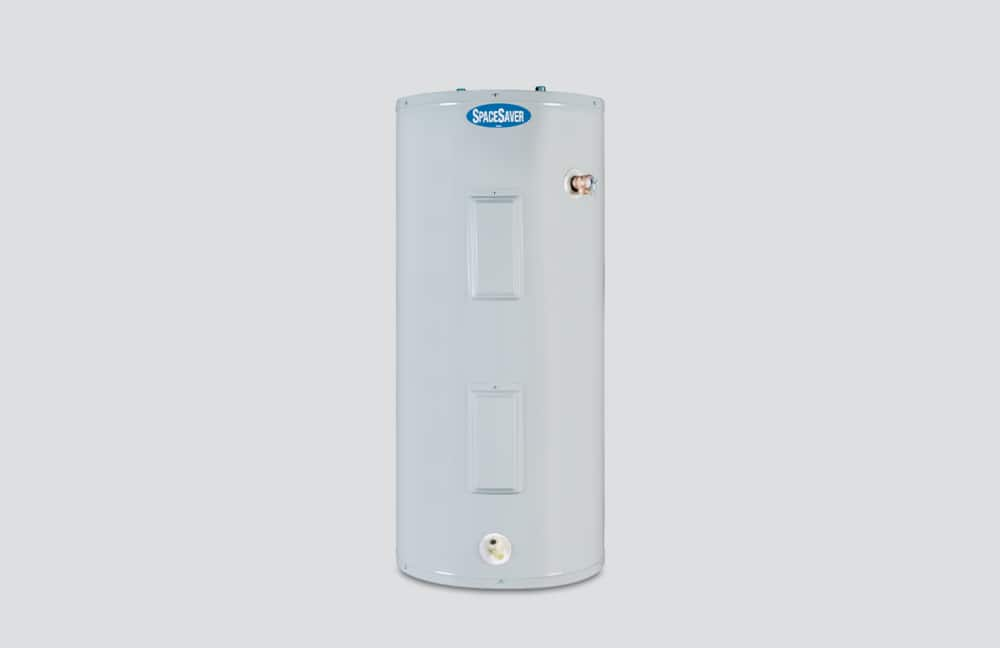
Tankless
The specification for a tankless water heater depends on the gallons per minute (GPM) the unit can expel. On a tankless unit, this specifies the amount of water the unit can heat each minute. Making sure a tankless unit is best suited for your family takes a bit more planning but can provide cost savings in the correct application.
Shop All Tankless Water Heaters
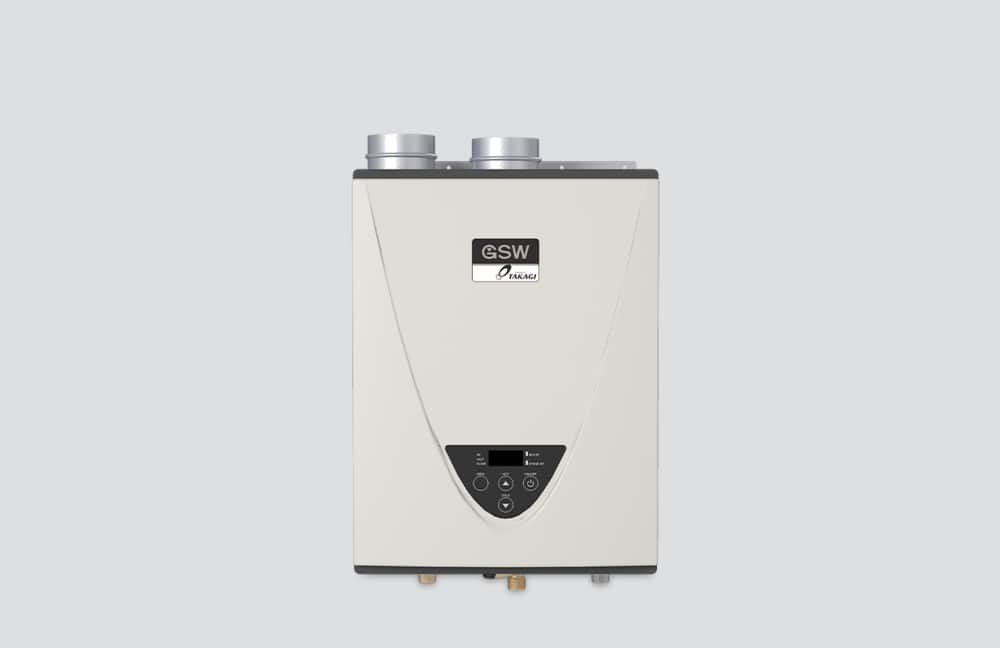
Point of Use
If your space is very limited, and your water demand is low, a point of use unit may be for you. Point of use units are designed for under-the-counter use, cottages and mobile homes. They come in plug-in models, as well as hard-wired models.
Shop All Point of Use Water Heaters
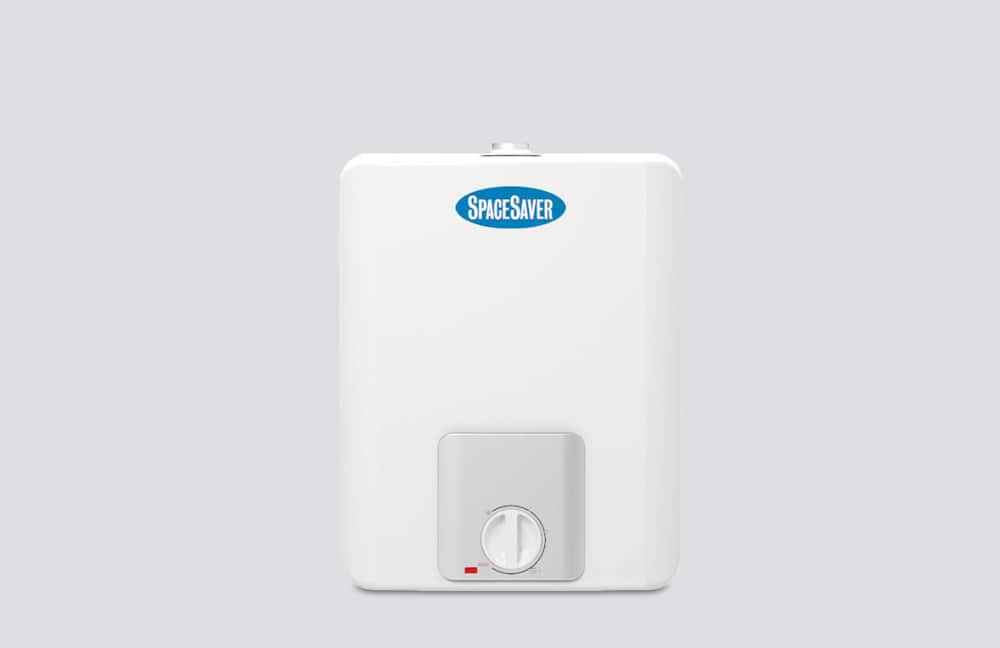
Electric
Electric water heaters use one or two replaceable heating elements and are less expensive to purchase but more expensive to run than gas burning heaters. However, high-efficiency options are available, and they come in a variety of sizes to fit different homes.
Shop All Electric Water Heaters
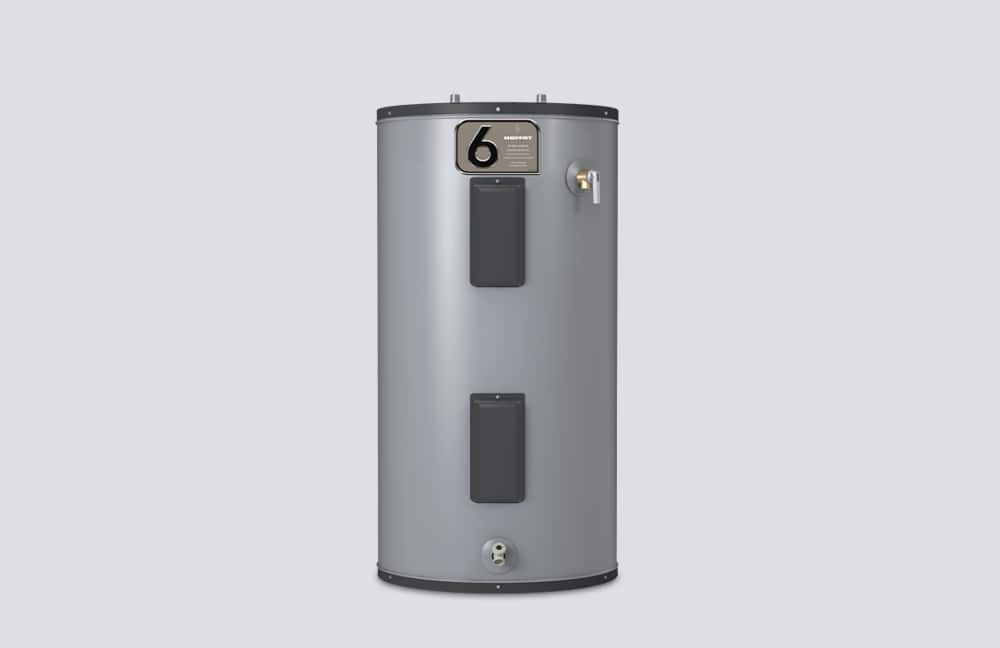
Natural Gas
These water heaters use a gas burner, and some models need air circulation for venting. Flammable substances need to be stored elsewhere. However, some units have detectors that help shut the water heater down if flammable vapours are detected. Natural gas heaters are more energy-efficient than electric models, but also more costly to purchase.
Shop All Gas Water Heaters
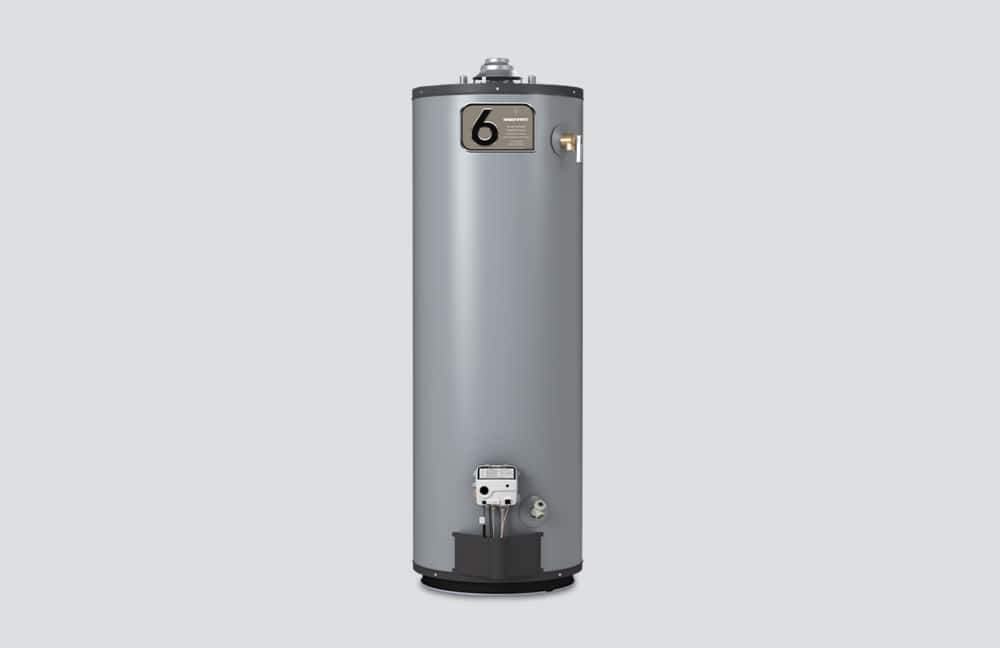
Choosing a tank
The table below provides a general tank-size estimate one should purchase based on family size and hot water usage.
20-39 gallons |
40-49 gallons |
50-59 gallons |
> 60 gallons* |
|
1-2 people |
 |
|||
2-4 people |
 |
|||
3-5 people |
 |
|||
5+ people |
 |
Table 1: Water heater tank size by family size. *Add 10G per additional person
Tank Water Heaters
The specifications for a tank-type water heater you really should focus on are the first-hour rating (FHR) and the recovery rate. The FHR is the amount of hot water a unit can provide in one hour, starting with a full tank of heated hot water. Technically, this is the tank's actual capacity, as the FHR is usually higher than the tank capacity listed on the carton. The recovery rate of your water heater is the amount of water the water heater can provide in a given time period. The recovery rate depends on the wattage of the heating elements (in an electric water heater), the incoming water temperature, and how hot you are heating the water.
Shop All Tank Water Heaters

Tankless Water Heaters
An average tankless unit in Canada will heat 3.5 GPM. The rate at which a tankless can heat your water depends on the incoming ground water temperature and the temperature you set your water heater. The more incoming groundwater that needs to be heated, the lower your maximum GPM will be. Take the time to investigate your peak hour of hot water usage and determine the best first-hour rating for your hot water needs. For example, if both your children shower after dinner while you run the dishwasher and do a laundry load, you want to ensure your water heater can keep up with that demand.
Shop All Tankless Water Heaters

Tankless
The table below provides the average flow rates for hot-water-using fixtures.
Sink Faucet |
Bathtub |
Shower |
Dishwasher |
Washing Machine |
|
Average Flow Rate |
1 GPM |
3 GPM |
2.5 GPM |
3 GPM |
3 GPM |
Table 2: Average flow rates of household fixtures in gallons per minute (GPM)
Space
If you haven’t replaced your water heater in a while, remeasure your space before purchasing a similar unit. New technologies have emerged, and tanks generally have more girth to accommodate added insulation to improve efficiencies. Tankless water heaters are great because they are compact, but retrofitting them to fit your home can be expensive. They are the way to go if you need to install a water heater in a tight space. Ensure you have the proper power supply available (if applicable) and enough space for the heater to intake air (if applicable).
Shop All Tape Measures
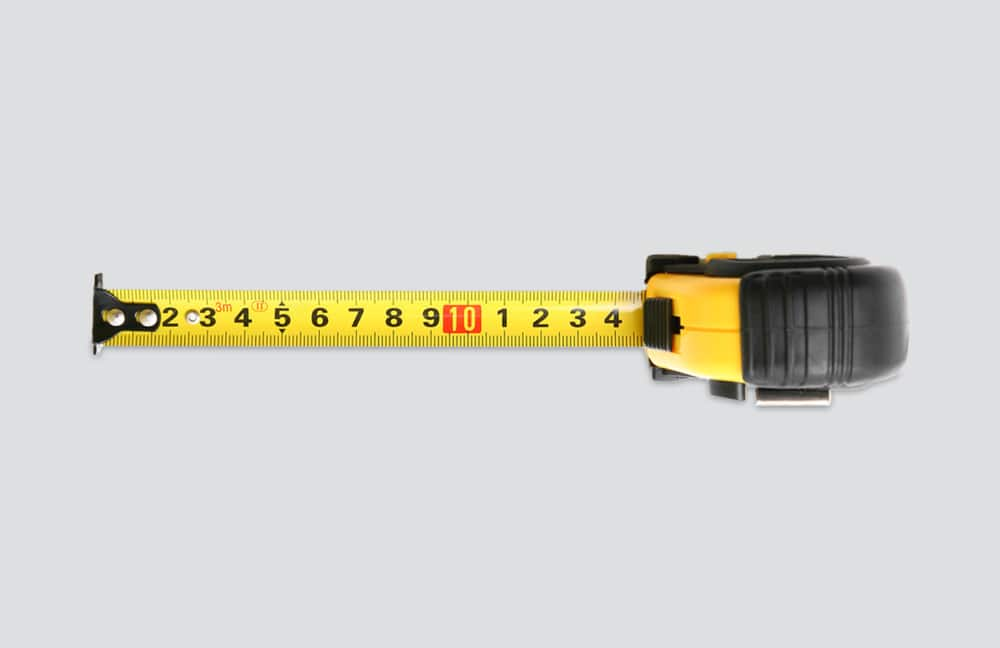
Find the right water heater
Find your perfect fit in our assortment that includes gas and electric heaters in a range of sizes.
Shop All Water Heaters

